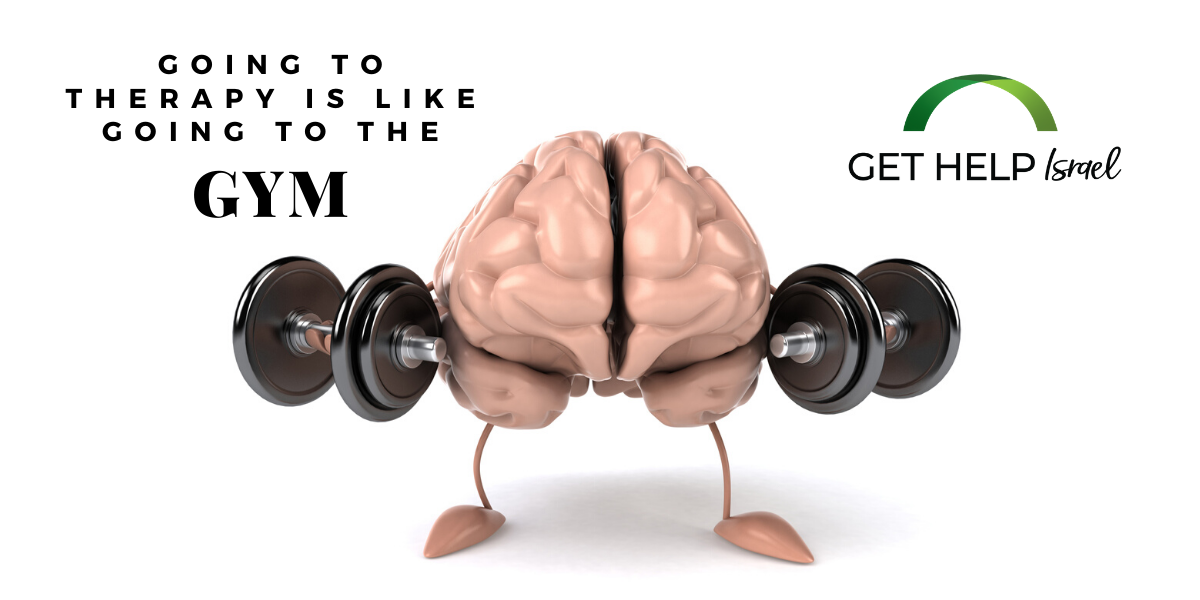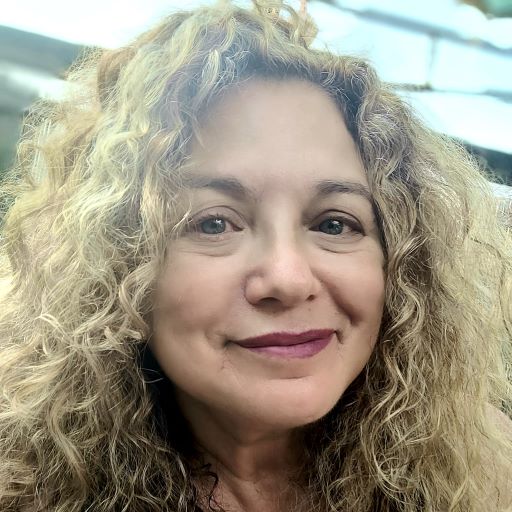Keren Burgman
Credentials
Finances
- Naririya
- Email Me
-
 Business Hours
Business Hours
Evenings
Fridays/Weekends
Keren Burgman
 Verified
Verified
Credentials
Couples and Family Therapist
MFT
Finances
350-500 NIS
N/A
Sliding Scale | Free Consultation | Student Discount
- Naririya
ABOUT
As a therapist my goal is to provide you with a safe, trusting and accepting environment where you have an opportunity to practice new ways of coping. communicating, changing perceptions, feelings, beliefs and integrating new behavior.
Learning to cope differently is key to transformation, it is not about completely eliminating what no longer works but to add to what already exists in order to transform meaning and understanding. The problem isn't the problem, the coping/survival stance is the problem.
When we are stuck we are resistant to change, when we reconnect to being present, we can begin to be open to and allow "what is" inside of ourselves. Changing the flow of sensations, feelings, and thoughts can allow us to live life with clarity and more self compassion. Only from purposefully bringing attention from mental and emotional reactivity, old coping stances to untangling emotional suffering allows us to re awaken from the trance, old re-runs of our mind to wakefulness of our heart.
The question is not why did this happen to me, the why tends to keep a person stuck in a limited story, I work outside the why whether it is a youngster, teen, an adult, couple or family, I'am here to help you remember that you can make changes in your life, to use your past as a catalyst for insight, healing and growth, to become aware of and access your inner resources, find hope when filled with uncertainty, and make choices that result in healthier behaviors.
I have studied many methods about human change; little did I know back 30 years ago as I began my international experience as an American traveling abroad that my career would be built on living on 3 continents bringing its own unique encounters insights and cultural adjustments. Each place that I have lived has brought new opportunities and challenges.
Over the years I have worked in a variety of settings from profit to non-profit, from being a therapist for a community counseling center, a senior counselor for youth at risk, peer support training for students at international elementary/ high schools,communication workshops facilitator, mindfulness and stress management, therapist at a complimentary wellness center, coping with grief and loss, counseling for elderly and supporting children of aging parents, intercultural training/counseling for expats and now for those making Aliyah, and ongoing Individual, Family and Child Therapy.
As a therapist it is my job is to be attuned to the people I work with and how they respond to my intervention. I feel honored for those that I have guided, helped to unravel the unknown and encouraged them to explore new ways of knowing themselves and being in the world.
This unique relationship and process we call therapy, is really about our capacity to find compassion, acceptance, curiosity, mindfulness and a willingness to dive into the unknown, together. It's not selfish to love, take care of yourself and make happiness a priority, it's necessary. This is your life; there is nothing more precious and important than embracing your true nature.
QUALIFICATIONS
MFT
California Family Study Center/ now Phillips Graduate University
1993
Degree
MFTEducation
California Family Study Center/ now Phillips Graduate UniversityYear of Graduation
1993Years in Practice
22
ADDITIONAL CREDENTIALS
Mindful Meditation Teacher Certification Program - Sounds True and the University of California Greater Good Science Center - 2023
DISTANCE COUNSELING
Telephone Counseling, Online Therapy
BLOG POSTS
.png)
Taking a U Turn From Thought: A Mindful Pathway Out of Trance
“Who is your enemy?” said the Buddha. “Mind is your enemy. Not one can harm you more than a mind untrained. Who is your friend? No one can assist you and care for you better than your mind well-trained. Not even the most loving mother or father.”

How to Create a Sense of Normalcy at Home While Navigating the New Normal
Covid brings with it feelings of anxiety, stress and uncertainty. Though children deal with emotions in different ways, your child has been faced with school closures, cancelled events or separation from friends, they are going to need to feel loved and supported now...

Lets Talk About Therapy The Same Way We Talk About Going To the Gym
Imagine how much easier life would be if therapy was seen simply as a form…

The Wondrous “Black Sheep”: the Truth Teller of a Family
How often have you heard someone describing their family and either talking about a sibling…

Embracing Transitions: Finding the MAGIC PAUSE Moment
Autumn is the season of change. I grew up in the Midwest, Chicago. First there…

Beginnings & Endings: Making Sense of Life Changes
The holiday season has ended, the parties and festivities subsided, and we come back to…

Showing Up Just The Way You Are
As we approach the holiday season and celebrations are upon us we can feel very…
PRIMARY SPECIALTIES
Anxiety / Panic
Couples / Relationship / Marriage Counseling
Grief
Life Transitions
Trauma / Post Traumatic Stress Disorder PTSD
ADDITIONAL SPECIALTIES
Abuse
Cancer / Terminal Illness
Codependency
Depression
Divorce / Custody
Family Issues
Gender Identity Concerns
LGBTQ
Parenting Issues / Training
Self-Esteem
Stress Management
CLIENT FOCUS
Population
Adolescents
Adults
Couples
Families
Men
Women
Geriatric
LGBTQ
Languages
English
TREATMENT APPROACH
Body-Mind PsychotherapyBody-mind psychotherapy is an integrative approach to psychological treatment that draws from both psychotherapeutic and somatic/body-based approaches. It emphasizes the interconnection between physical, emotional, cognitive and spiritual aspects of being. This approach seeks to help individuals explore how physical sensations, emotions, thoughts and beliefs influence their behavior and well-being. Through this exploration, individuals can gain insight into how the body and mind interact to create patterns of behavior, and how those patterns can be changed to promote healing and wellness.
Cognitive Behavioral Therapy (CBT)Cognitive Behavioral Therapy (CBT) is a type of psychotherapy that focuses on how one's thoughts, feelings and behaviors are connected and can be changed. It is based on the idea that how we think (cognition) and how we feel (emotion) can influence how we behave. CBT helps people identify and challenge distorted thinking and replace it with more balanced thinking, leading to improved mood and behavior. ‘Homework’, usually containing practical writing exercises, is often completed by the client between sessions to reinforce the therapy. Examples of tools that practitioners often use are journaling, challenging beliefs, and mindfulness.
Dialectical Behavior Therapy (DBT)Dialectical Behavior Therapy (DBT) is a type of cognitive-behavioral therapy developed by Marsha Linehan to help people learn to better manage and cope with emotions and stress. It focuses on developing skills and strategies to help regulate emotions, improve relationships and communication, and reduce self-destructive behaviors. Through DBT, people learn to identify and modify unhealthy thoughts and behaviors, while also learning to accept and validate their own feelings. DBT teaches skills to help individuals become aware of and accept and regulate their emotions, tolerate distress, and improve interpersonal relationships.
Expressive Arts TherapyExpressive Arts Therapy is particularly beneficial for clients who struggle with describing what they are feeling verbally. Through imagination and creation of different art forms, clients are able to interpret and communicate their inner world and catalyze healing. Expressive arts therapy can involve the use of multiple modalities, such as visual arts, music, movement, drama, storytelling, poetry, and play. It is used to help individuals of all ages, including children and adults, to explore their feelings, reconcile emotional conflicts, foster self-awareness, manage behavior and addictions, develop social skills, improve reality orientation, and solve problems.
Family Systems TherapyFamily Systems Therapy is an approach to psychotherapy that emphasizes the importance of understanding how the family functions as a whole, and how individual family members interact and affect one another. It focuses on how family dynamics, such as communication patterns, roles, and power dynamics, shape behavior, and how changing these dynamics can lead to positive change. Family Systems Therapy is a collaborative approach, where the therapist works with the family as a whole to identify and address areas of conflict and distress.
Gestalt TherapyGestalt therapy is an experiential, humanistic approach to psychotherapy that emphasizes personal responsibility, and that focuses on the individual's experience in the present moment. It explores an individual's emotions, behaviors, and thoughts, and how they may be influencing one another. It is rooted in the belief that people are responsible for their own experience, and that they can make conscious choices to improve their lives. The goal of gestalt therapy is to help individuals gain insight into their current experiences and to become aware of how their behaviors and thoughts shape their present reality.
Gottman MethodThe Gottman Method is an evidence-based approach to couples therapy that is designed to help couples strengthen their relationships and resolve conflicts. This method is based upon decades of research on thousands of couples and utilizes an approach that is both structured and collaborative. The method is designed to help couples increase respect, affection, and closeness, break through and resolve conflict, generate greater understanding, and to keep conflict discussions calm. It emphasizes the importance of self-regulation, constructive communication, and creating a safe environment for couples to talk and work through their issues. During sessions, couples work on skills such as active listening and expressing needs and feelings effectively. Couples are also given tools to identify and work through conflicts by using problem-solving techniques and developing strategies to manage emotions and reduce stress.
Internal Family Systems (IFS)Internal Family Systems (IFS) is an evidence-based psychotherapy that uses the metaphor of an internal family of parts to help people gain awareness of how different parts of themselves can interact in healthy and unhealthy ways. IFS encourages people to become curious about their different parts, with the goal of helping them gain access to their true Self or core. Through this process, people can learn to recognize and care for the different parts of themselves, as well as develop compassionate understanding for the origins of their parts. A key principle of IFS is that each part within the person has its own positive intention and is trying to protect the person in some way. By understanding the positive intention of each part, the practitioner and client can work together to help the parts feel heard and understood, and to find more adaptive ways of meeting their needs. IFS has been found to be an effective treatment for a variety of mental health issues, including depression, anxiety, trauma, and relationship issues.
Mindfulness-Based Cognitive Therapy (MBCT)Mindfulness-Based Cognitive Therapy (MBCT) is a form of therapy that combines cognitive behavioral therapy with mindfulness practices. It is based on the idea that our thoughts, emotions, and physical sensations can affect our mental health. MBCT helps individuals become aware of their thoughts, emotions, and physical sensations in order to gain insight and control over them. MBCT helps clients learn how to recognize their sense of being and see themselves as separate from their thoughts and moods. This separation can free the client from thought patterns in which the repeated negative messages may be dominating the client’s focus. After developing an awareness of the separation between thoughts, emotions, and the self, people in treatment may find that while the self and the emotions may exist simultaneously, they do not have to exist within the same dimension. The healing can take place when one learns how to interject positive thoughts into negative moods and thereby create a shift in mood.
Play TherapyPlay therapy is an evidence-based, developmentally appropriate form of intervention used to facilitate emotional, cognitive, and social growth in children. Play therapy is based on the premise that play is the child's natural medium of self-expression and can be used to assess and help a child work through difficult emotions, thoughts, and behaviors. The goal of play therapy is to help children develop the skills and abilities to navigate life stressors, and build self-esteem. During treatment, the therapist creates a comfortable, safe environment (a playroom) for the child to play with as few limits as possible. The toys in the playroom are intended to encourage the child to express his or her feelings and develop healthier behaviors. The child’s “play” with these toys serve as the child’s symbolic words, which may be difficult to express otherwise.
Systems Theory / TherapySystems therapy is a type of psychotherapy that focuses on understanding how people's behavior is affected by their relationships with others. This form of therapy is based on the idea that the individual is embedded within a larger system, such as a family unit or work environment, and that changes to that system can cause changes in an individual's behavior. Systems therapy emphasizes the importance of understanding how these systems interact and how they can be changed to improve the individual's mental health. The therapist works to identify patterns of behavior in the system, identify areas of conflict or stress, and help the individuals develop strategies to make changes within the system that will lead to healthier outcomes.
Radical Compassion: Practice of RAIN (Recognize, Allow, Investigate and Nurture)
SERVICES OFFERED
Individual Therapy
Couples Therapy
Family Therapy
Consultation
Coaching
Workshops/Educating
BLOG POSTS
.png)
Taking a U Turn From Thought: A Mindful Pathway Out of Trance
“Who is your enemy?” said the Buddha. “Mind is your enemy. Not one can harm you more than a mind untrained. Who is your friend? No one can assist you and care for you better than your mind well-trained. Not even the most loving mother or father.”

How to Create a Sense of Normalcy at Home While Navigating the New Normal
Covid brings with it feelings of anxiety, stress and uncertainty. Though children deal with emotions in different ways, your child has been faced with school closures, cancelled events or separation from friends, they are going to need to feel loved and supported now...

Lets Talk About Therapy The Same Way We Talk About Going To the Gym
Imagine how much easier life would be if therapy was seen simply as a form…

The Wondrous “Black Sheep”: the Truth Teller of a Family
How often have you heard someone describing their family and either talking about a sibling…

Embracing Transitions: Finding the MAGIC PAUSE Moment
Autumn is the season of change. I grew up in the Midwest, Chicago. First there…

Beginnings & Endings: Making Sense of Life Changes
The holiday season has ended, the parties and festivities subsided, and we come back to…

Showing Up Just The Way You Are
As we approach the holiday season and celebrations are upon us we can feel very…

 Verified
Verified 

